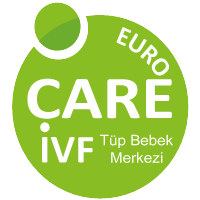
Embryo transfer is the final step of the IVF process and, understandably, this can be a major source of stress. It’s common for many women to worry whether their follicles are developing well, how many eggs will be retrieved, and how many will be fertilized.
The path to this last phase of treatment is unique for everyone, but understanding what to expect can help you feel more prepared and decrease your concerns. Here’s everything you need to know about follicular development, egg fertilization, and embryo transfer.
How many eggs do I need for IVF?
Producing multiple follicles is important because not every follicle will have a growing egg, and not every egg will end up being fertilized. According to research, having too many follicles may lead to an increased risk of developing a painful condition known as ovarian hyperstimulation syndrome (OHSS). In the majority of cases, having between 8 and 15 follicles is considered enough.
Once you have produced enough larger follicles (18 mm in diameter), they will be retrieved from the ovaries. The exact number of eggs you end up with can be discovered only after the IVF egg collection procedure.
During egg retrieval, a transvaginal ultrasound is used to identify the follicles. The eggs are then retrieved using a thin needle. Mature oocytes are placed in a nutritive liquid and incubated. Not every follicle will necessarily contain a mature, viable egg. It is perfectly normal if the number of retrieved eggs doesn’t match the number of mature eggs.
What is the IVF egg to embryo ratio?
During the fertilization process, eggs that are mature and healthy are combined with sperm (either from a partner or donor). Fertilization is done using intracytoplasmic sperm injection (ICSI). With this method, a single sperm is injected directly into each mature oocyte.
Not all fertilized eggs will further develop into embryos. For instance, it is not uncommon to have 15 eggs collected, 10 of which become embryos. The average rates of egg development are as follows:
- Maturity – 80% of all retrieved eggs
- Fertilization – 80% of all mature eggs
- Embryo utilization – 30-40% of fertilized eggs/total embryos
Embryo development
Embryo development begins once the fertilized eggs are incubated. In the following 3-5 days, an embryologist will examine each embryo and check its progress. About 30 hours after fertilization, each egg will divide, producing a 2-cell embryo. Further division occurs approximately every 12 hours, producing 4-cell embryos on the second day and 8-cell embryos on the third day.
Some clinics decide to transfer the embryos on the third day, but we prefer to wait until the embryo has entered its blastocyst stage (usually around day 5).
Similarly to conceiving naturally, some of your embryos might stop growing shortly after being created. While this may seem daunting, remember that these embryos likely had genetic abnormalities and/or would not have continued to grow in your body either.
How many embryos will be transferred?
If you’ve been trying to conceive for a while, the idea of increasing your chances by transferring two or more embryos may seem tempting.
In most cases, women under the age of 38 – as well as women who have had fewer than two unsuccessful embryo transfers – are typically recommended to transfer two embryos. This is because the rate of implantation is generally lower for older women, so the number of transferred embryos may go up with age.
Generally speaking, the number of embryos you transfer is a decision that you must make with your fertility doctor. To achieve the best outcome possible, a good doctor-patient relationship is vital. Your doctor should discuss your prognosis for success with you and help you make an informed decision.
If you are using donor eggs, the number of embryos is determined by the age of the donor.
Freezing your embryos
Sometimes, IVF patients end up with more healthy embryos than they actually need. If this occurs, you may choose to freeze them for future use. Embryo cryopreservation (or embryo freezing) can make future IVF cycles less expensive and less invasive. It is important to remember that not all embryos will survive the freezing and thawing process.
Before starting the IVF process, speak with your doctor (and your partner) about all possible options if you end up with extra embryos.
Start your journey to parenthood with EuroCARE IVF!
When it comes to egg development and embryo transfer, quality is often better than quantity – try not to obsess over your IVF egg to embryo ratio.
IVF is an emotional process, and finding the right team that you feel fully comfortable with is key. Moreover, EuroCARE IVF offers you the opportunity to combine your medical trip with a relaxing holiday. With cheap flights available from all major European airports plus the excellent transport connections between cities, getting to Cyprus and around the island couldn’t be easier. We can’t wait to meet you!
